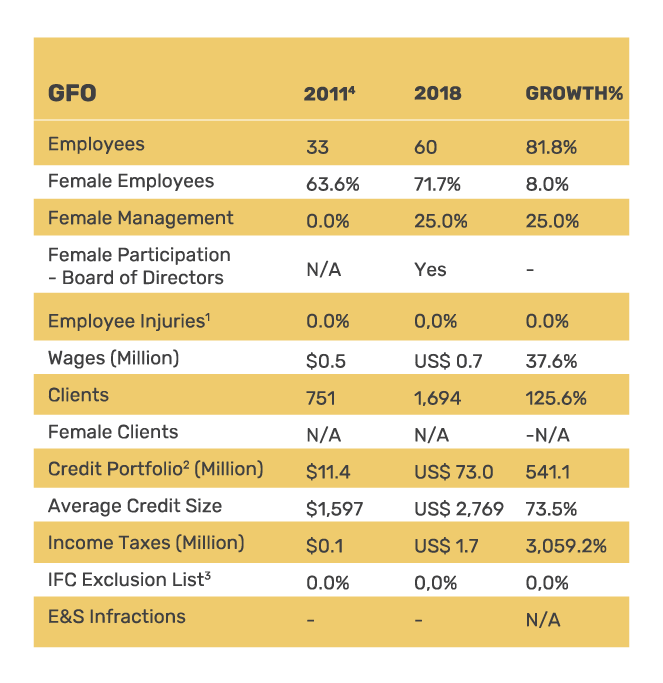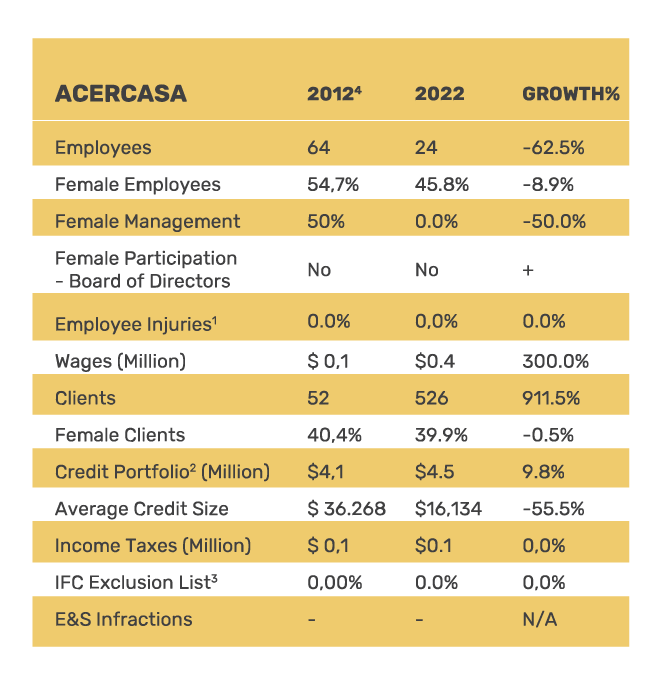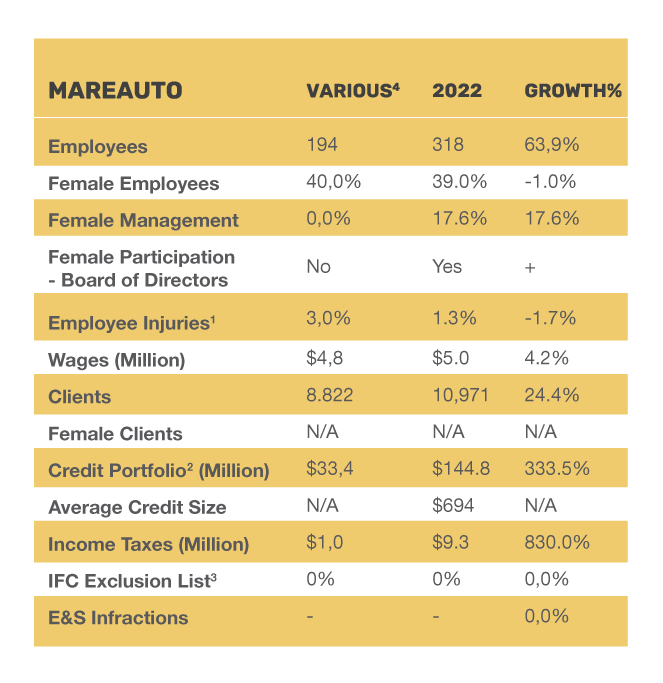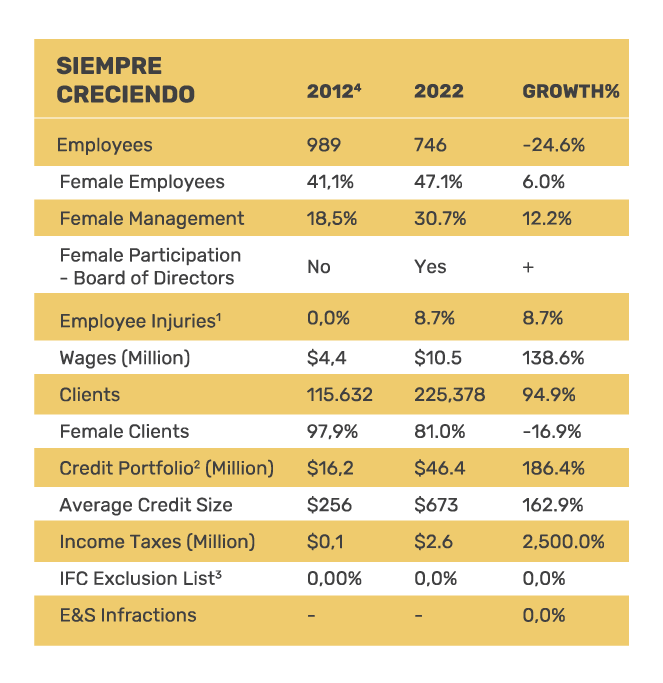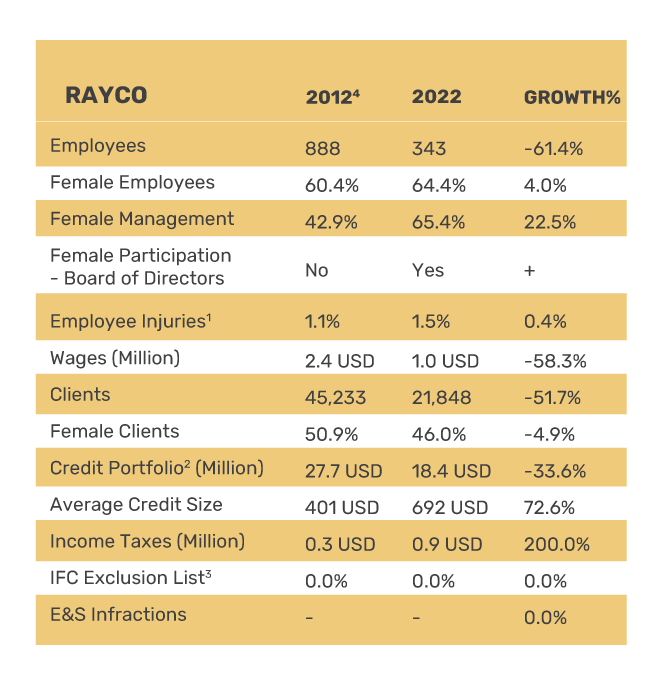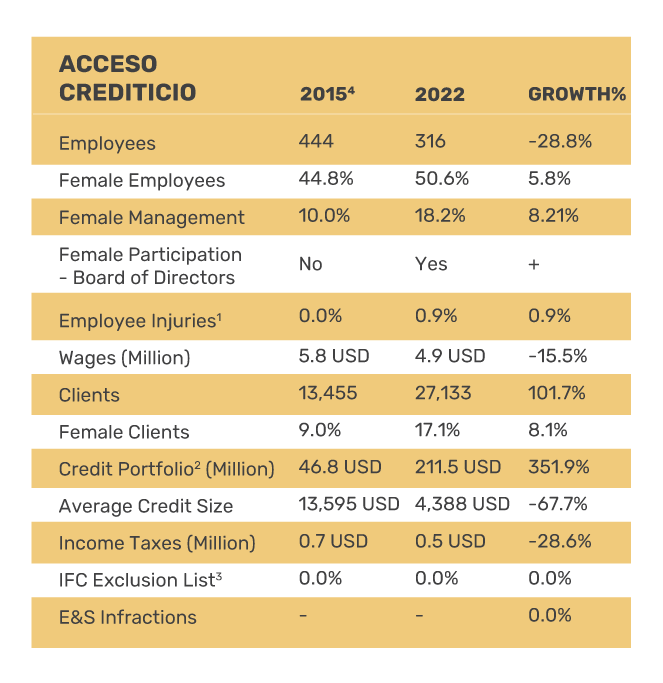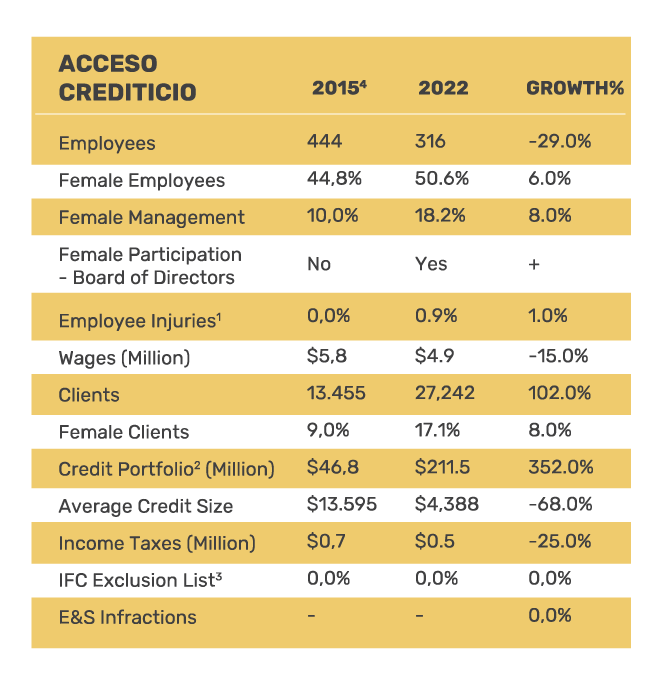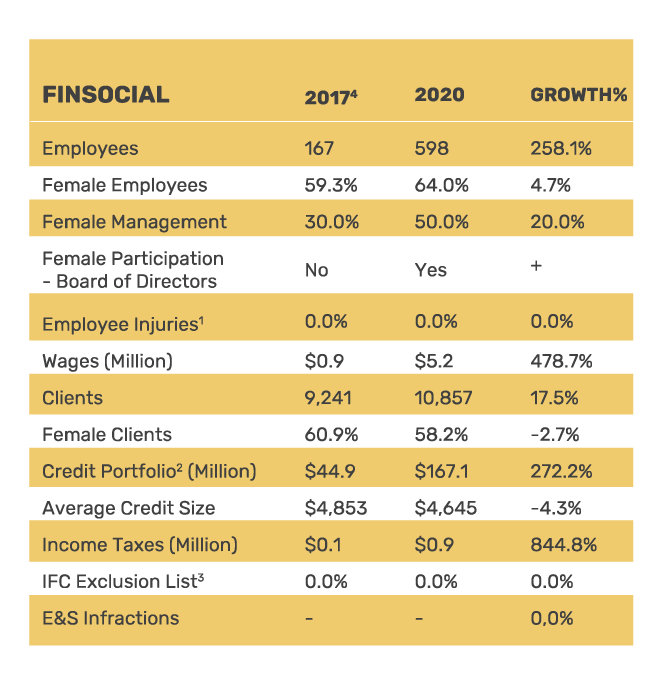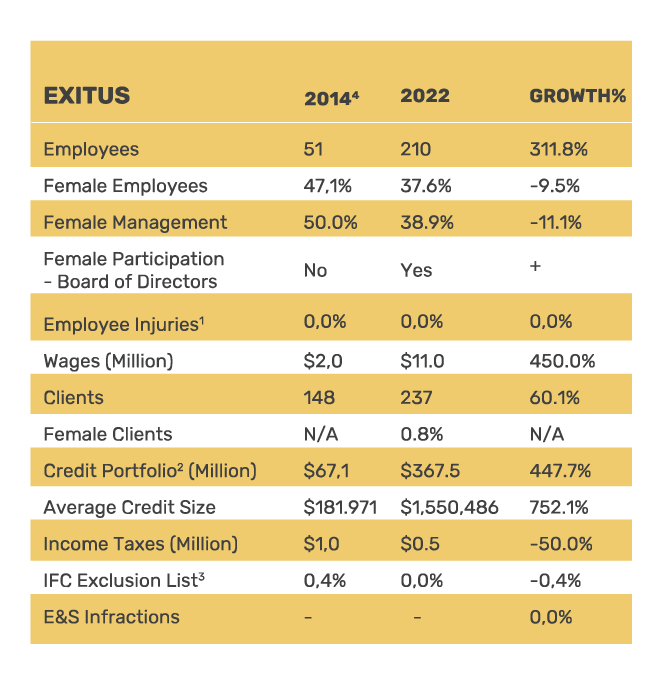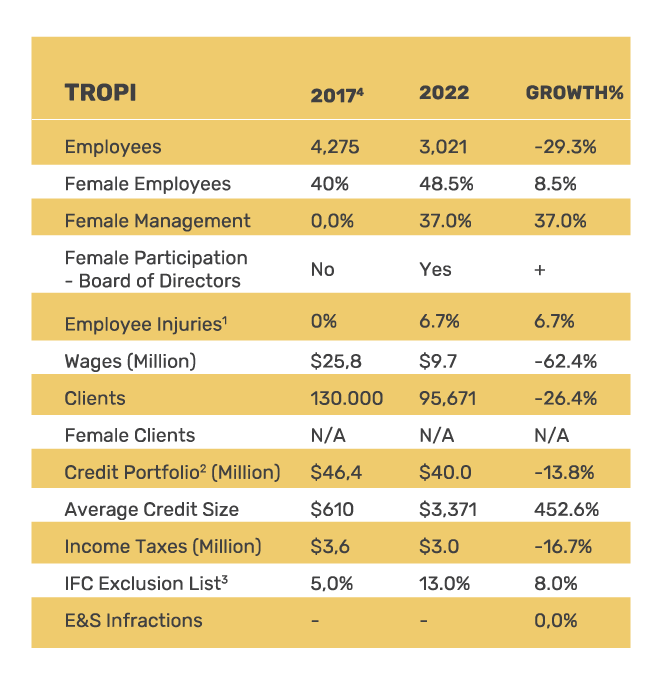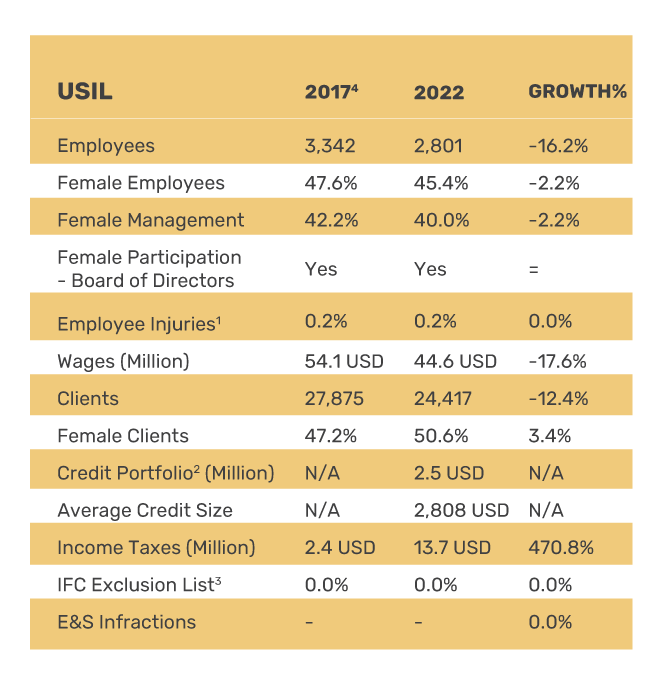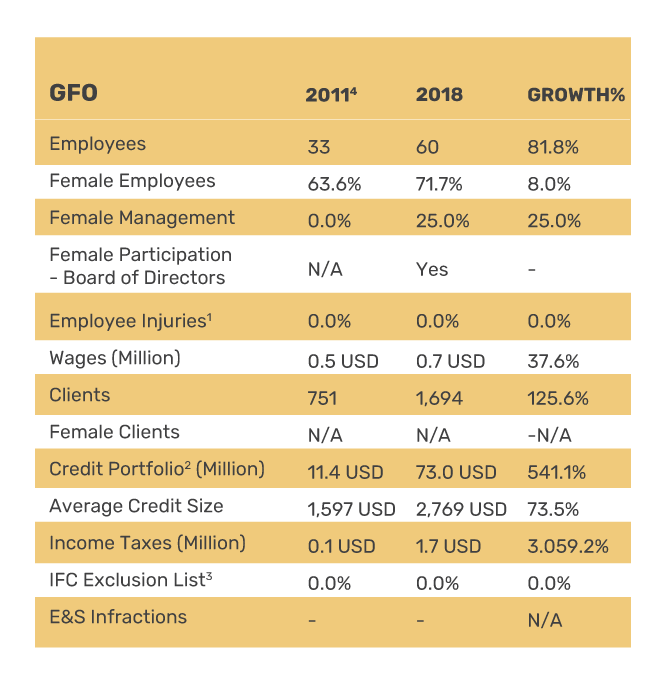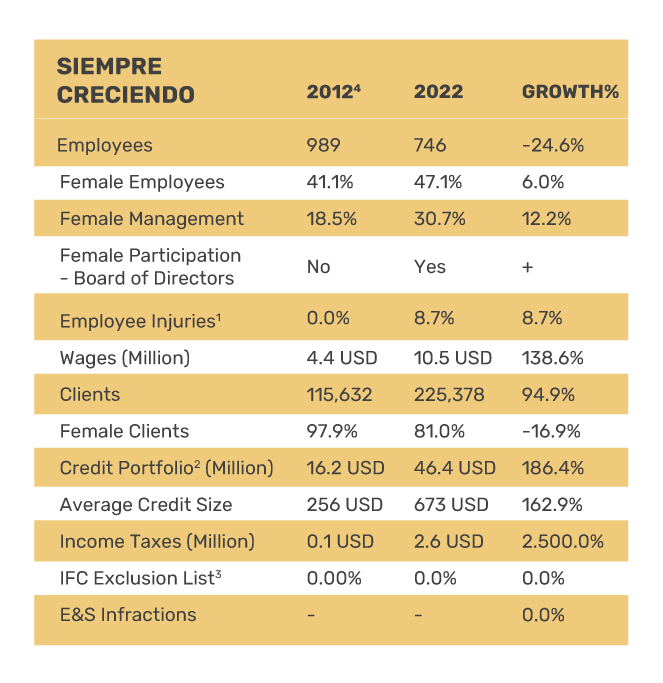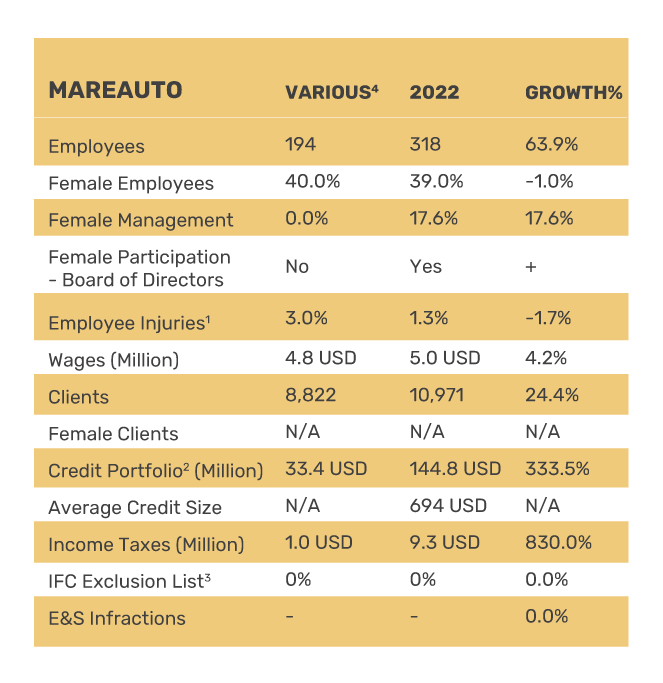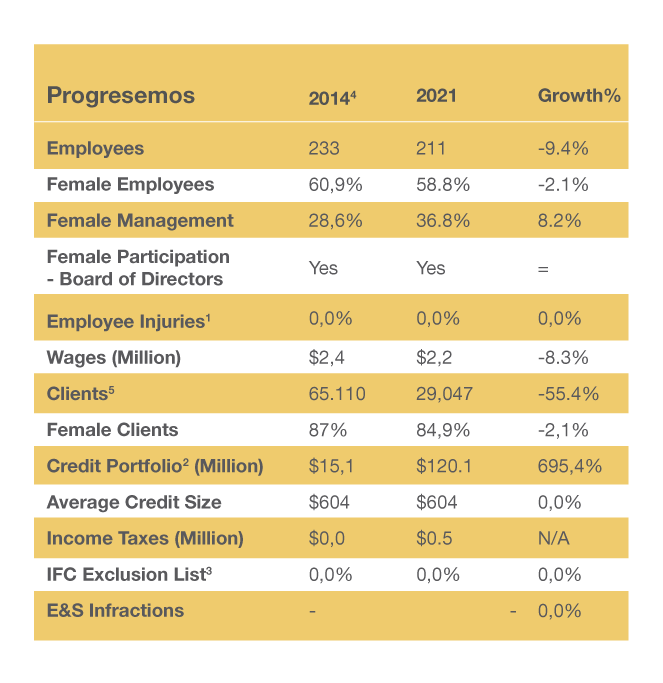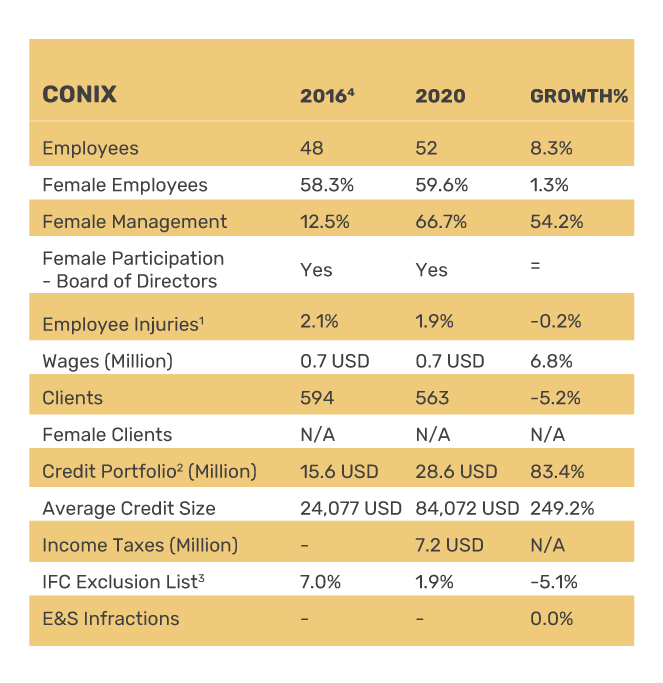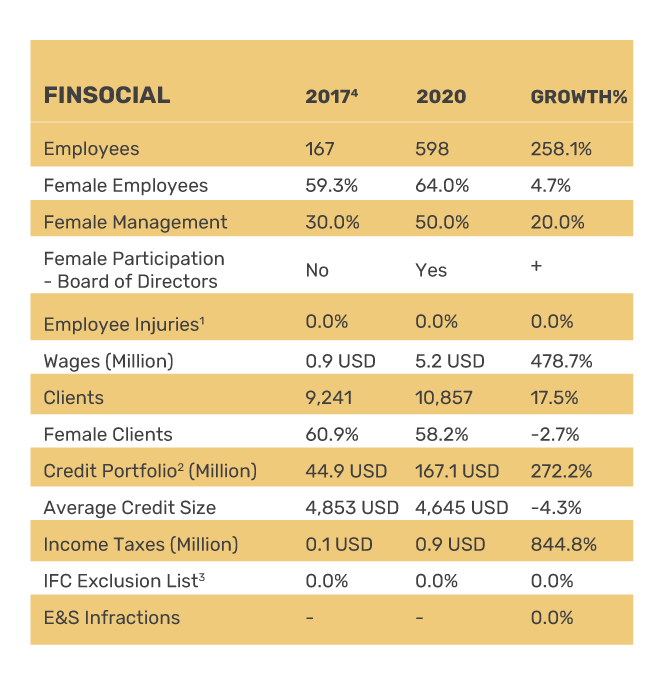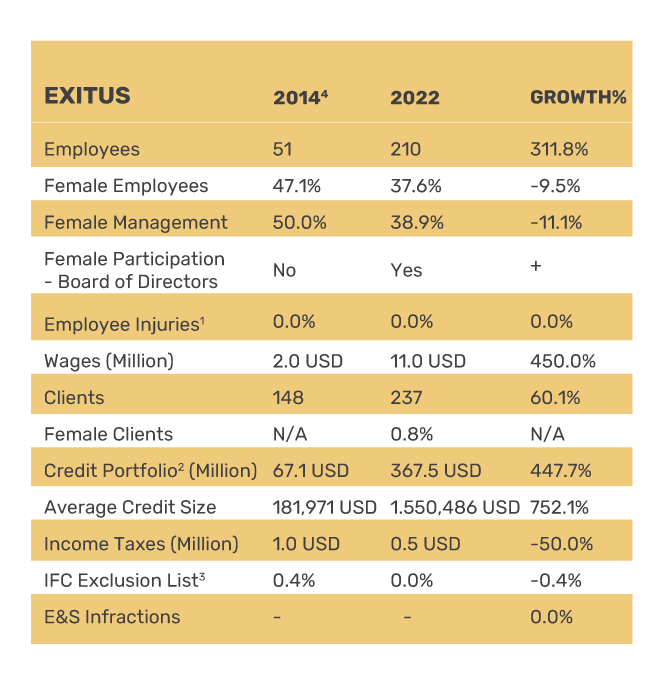

Acceso Crediticio is Peru’s leading financial entity in taxi financing. Its business model has helped originate more than 69,000 vehicle loans, reaching a managed portfolio of PEN 1,251 million in 2022. The positive impact on the environment is clear - financing is reserved principally for vehicles that run on natural gas. Moreover, it speaks to Kandeo’s commitment to supporting financial inclusion and society at large.
In 2022, the company’s ESG team won first place for Social Responsibility at the INDECOPI contest for its concept “Women Warriors at the Wheel”. The project was launched in August of the same year, promoting electromobility across the country and providing job opportunities to vulnerable sectors. As a part of this initiative, Acceso acquired the first fleet of electric transportation service vehicles in Peru. The vehicles were given to Peruvian and migrant women to work as taxi drivers, providing them more economic opportunities and a better quality of life. Because of this gesture, the company, with the technical assistance of the IFC, was able to issue a bond to scale the project for greater community impact.
During the past year, Acceso Creditico created a Sustainability Committee of five members. The Committee meets quarterly and plans to add an additional independent member. The company’s web portal now includes a section dedicated to sustainability issues, and monthly newsletters are sent to strengthen communication.
Finally, Acceso was featured in Forbes Peru for being the country’s first company to showcase electric taxis. The company was awarded a SmartCampaign certificate due to its business process and practical improvements throughout the year. For more in-depth detail on its impact, please see Acceso’s annual report.
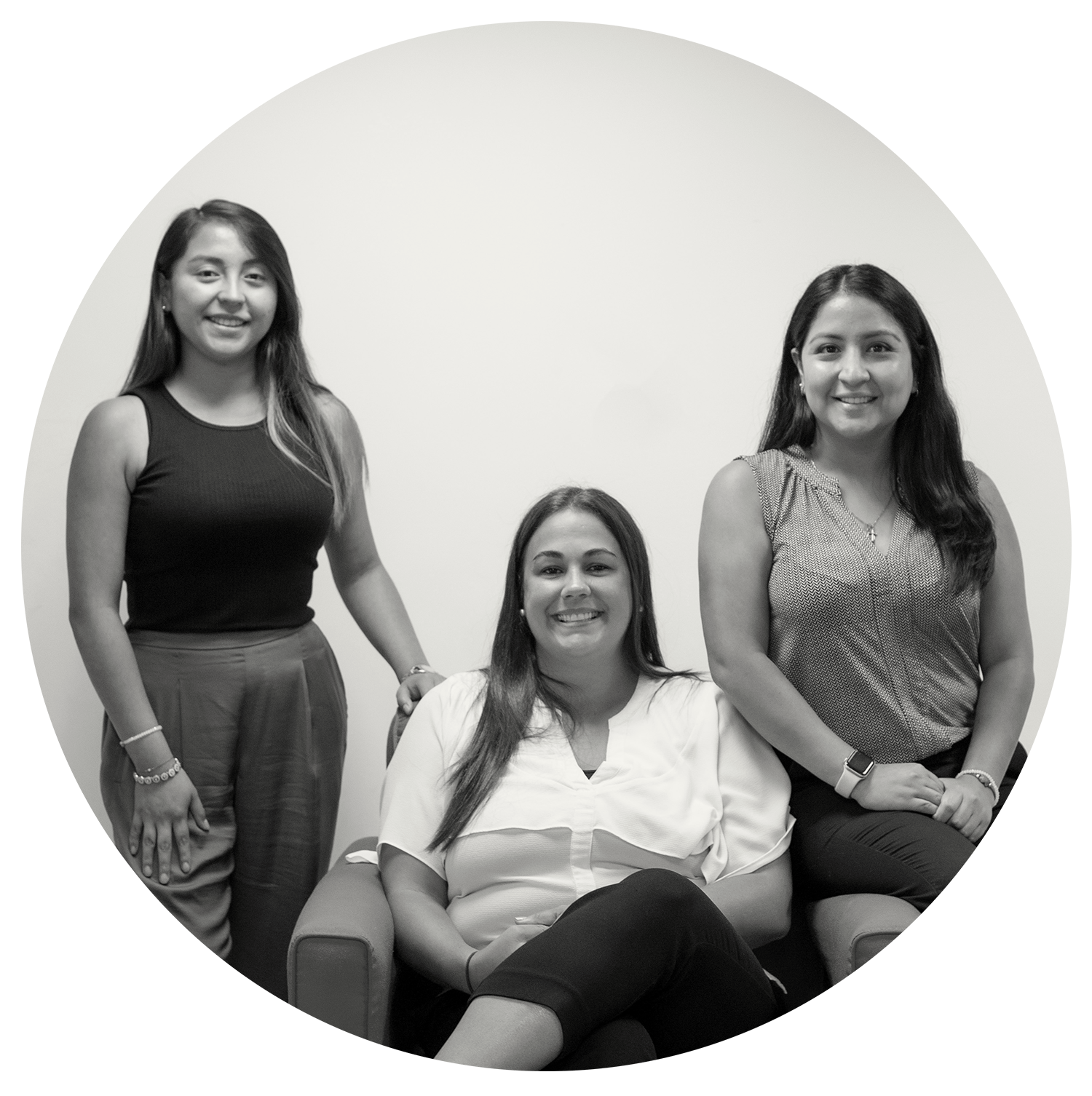
ESG Team
1. Please tell us about yourself: where you are from, what career you studied, professional background, family life, hobbies.
I received a degree in Business Administration from Universidad del Pacífico, later I completed an MBA in London at Cranfield University and I have a CFA and ESG certification. I started my career at Banco de Crédito del Perú (BCP) in the credit risk area and after my MBA, in the asset management area. Then I started working at Prima AFP and there I had a first approach to the world of alternative investments. In 2018 I received the assignment to lead the ESG thematic in the company.
2. What challenges have you faced along the way and how have you overcome them? Has being a woman worked against you, for you, or had no effect?
I became a mother when I was in university and since then I have had two roles to fulfill, being a mother and developing my career. Studying the MBA meant leaving my children in Peru, but it was a step that contributed to my professional development. When I made this decision there were people who criticized what I was doing because I was a mother.
In this sense, the biggest challenge has been to find a balance between my family and my work, in particular, to manage my expectations regarding culpability, for example, doing your job well demands a lot of effort and somehow you neglect your role as a mother and vice versa.
In general, top management positions are mostly lead by men and that means that you have few female references. In addition, networking outside working hours, which is also important, implies less family time, which becomes a disadvantage. But we should not only analyze external or cultural factors, but also analyze ourselves, women tend to have a more conservative risk profile and we should work on that.
3. There are currently large gender gaps in the Latin American business world. Only 15% of women hold management positions and only 14% own companies, according to a study by the Inter-American Development Bank (IDB). In your opinion, what is missing? How do you think that women who are just starting their careers can benefit from the knowledge and experience of experienced professionals? What can we all do together for and with each other?
I believe that it is key for women in representative management positions to use the reach they have to encourage other women to develop, through mentoring or sponsorship. Life and professional experience add a lot and encourages women to continue to grow. As much as we can, we must help each other.
4. At Prima, how do you approach the issue of equal opportunities between men and women? Do you consider that the company has evolved in this aspect, in closing gender gaps?
Until a few years ago there were no women on Prima's board of directors and today there are 2 women participating. At Prima, the participation of female employees is approximately 60% of the total, but at a higher level, the participation of women is lower. We know this doesn’t change from one day to the next, so measures are being taken to improve this aspect, for example, in the case of middle management and above, it is mandatory to have a woman on the team. Prima has networking and leadership programs for women. Within my area there are no formal programs but since I am responsible for selecting almost half of my team, I always try to maintain a balance, currently I have 3 female interns, 3 female analysts and 3 male analysts.
5. In addition to the gender aspect, what else is the organization doing to contribute to the 2030 agenda of the Sustainable Development Goals?
At Prima and Credicorp we work through 3 corporate strategic pillars: the first, aimed at creating a more sustainable and inclusive economy through financial inclusion and sustainable assets under management; the second, improving the financial health of citizens through financial education, simplicity and transparency that allows reaching the affiliate in a simple way; finally, the third, empowering our employees through the leadership and networking programs mentioned above.
6. What’s next for you? What professional dreams to you want to pursue or achieve?
I am currently studying to become a Yoga teacher because I believe that personal, spiritual and physical development is very important. I would love to continue to be involved in sustainability regardless of the position I am in, I believe that there is still a lot to do in ESG.
7. What would you recommend to women to achieve their dreams?
Be authentic. This authenticity, which is sometimes associated with typically feminine values such as empathy and listening skills, will help women differentiate themselves from others; these are very important traits in leadership and also generate a great deal of value in organizations. It is also important that women are motivated to keep learning.





USIL is an educational corporation with more than 50 years in the industry providing the highest quality standards and services at all academic levels. With approximately 25,000 students on its roster at the close of 2022, it offers a robust scholarly experience and curriculum, positioning itself as one of Peru’s top institutions according to various national and international rankings. USIL currently has operations in Peru, Paraguay, and the United States.
In 2022 the Company’s ESG matrix was developed and its carbon footprint was measured. The findings provided valuable insight to cultivate a plan with concrete goals focused on better risk management. At the same time, the company is dealing with a post-covid reality where digital tools are the lifelines of businesses and schools. As data privacy has become a central issue across all sectors, USIL is proud to report it hasn’t experienced any negative incidents or information leaks during the past year.
In 2018, USIL made big changes in its energy consumption and can now boast a 90% usage of renewable resources. The company has developed community projects for vulnerable populations across the country, such as its program “Health Solidarity Kitchens” that was carried out in partnership with Caritas Lima. This initiative provided 394 people valuable education and training in nutrition and preventative care topics.
Last year, USIL received the “Socially Responsible Company Distinction” award for the eighth consecutive time. It has been featured in several articles related to sustainability issues. Since 2014, USIL has held close ties with Global Compact and with Peru’s Board of Trustees for Sustainability, reaffirming its commitment to human and labor rights, the environment, and the fight against corruption. Please see the company’s detailed annual report for more information on their outstanding work.
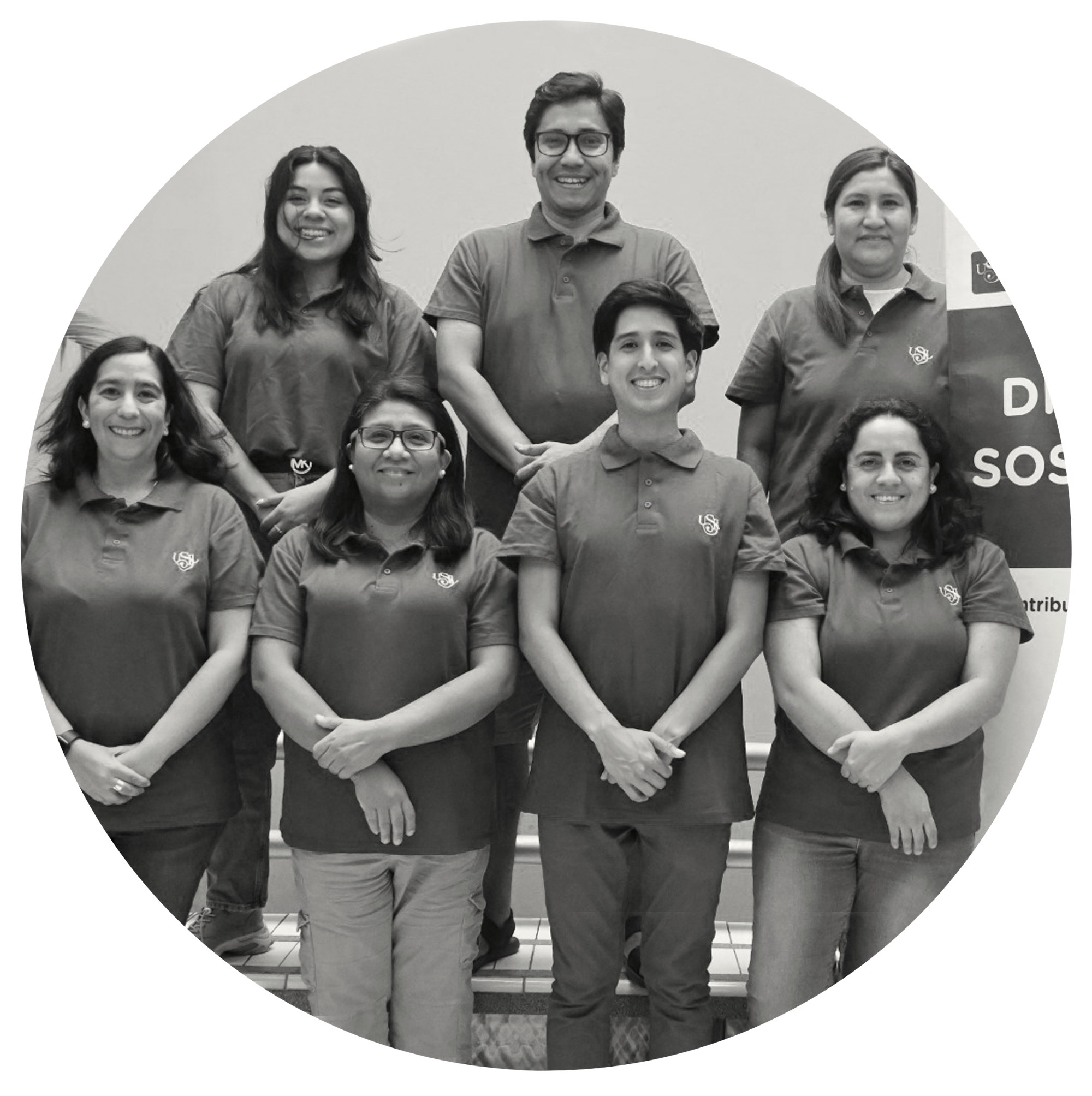
ESG Team


Tropi represents the successful consolidation of 27 distribution companies and 1 import company. It has become the most prominent and important mass consumption distributor in Colombia. To date, the Company operates in 99% of Colombian municipalities and directly services approximately 130,000 points of sale, mainly small stores.
In 2022, Tropi Group received a silver seal of recognition for its road safety practices. This was the result of an alert response from the national government’s general warning to the public of possible accident and fatality increases. The Company acted fast and was rewarded for its efforts in putting its employees’ and its community’s safety first.
To ensure a desirable workplace,Tropi grants additional benefits to its employees’ dependents. In 2022, staff received continuing educational opportunities, including the option to start or complete higher education studies. Currently, Tropi subsidizes on average 25% of tuition costs and has negotiated another 10% from the participating university or college. Employees also have access to its very own educational and training platform called LearnWithTropi, which offers a wide range of free courses.
Tropi’s commitment to the environment is strong. Given the company currently moves close to 1.2 billion Colombian pesos and more than 50,000 Stock Keeping Units (SKUs) in plastic and cardboard, waste management has always been a concern. In 2022, Tropi identified risks related to its social and environmental operations and therefore implemented eco-friendly initiatives such as replacing Styrofoam with 100% recycled cardboard, using 100% recycled polyethylene bottles, and reusing cardboard in its delivery process with customers. The company issues an annual report on sustainability which is circulated internally.
Currently, Tropi is seeking a partner to implement a national recycling program. This would mark great strides for the country in terms of waste management and environmental protection solutions.


ESG Team
Rayco distributor has been in business for more than 45 years providing Colombian households and micro-enterprises access to the financial resources needed to purchase goods and services. Rayco structures financing programs for home renovations and credit towards electrical appliances for those in lower economic social brackets, about 90% of the company’s clientele.
Rayco currently has an agreement with RedVerde, the first post-consumer appliance program in Colombia, which allows its customers to trade in old appliances for discounts towards a new purchase. The program promotes environmentally friendly products and in 2022 sold more than 4,600 appliances categorized as low energy consumers.
The Company has an ESG policy and committee in place that meets every six months. Rayco is certified in ISO* 9001 issued by ICONTEC* and addresses global risks based on this very methodology as well as ISO 31,000 providing guidelines for risk management and strategic operations.
In 2022, Rayco granted loans to more than 11,000 people from the county’s two lowest economic social classes. It also granted loans to 2,000 women running households and provided access credit to 425 persons without banking accounts to purchase electrical appliances.
_
* International Organization for Standardization
* Colombian Institute for Technical Standards and Certification
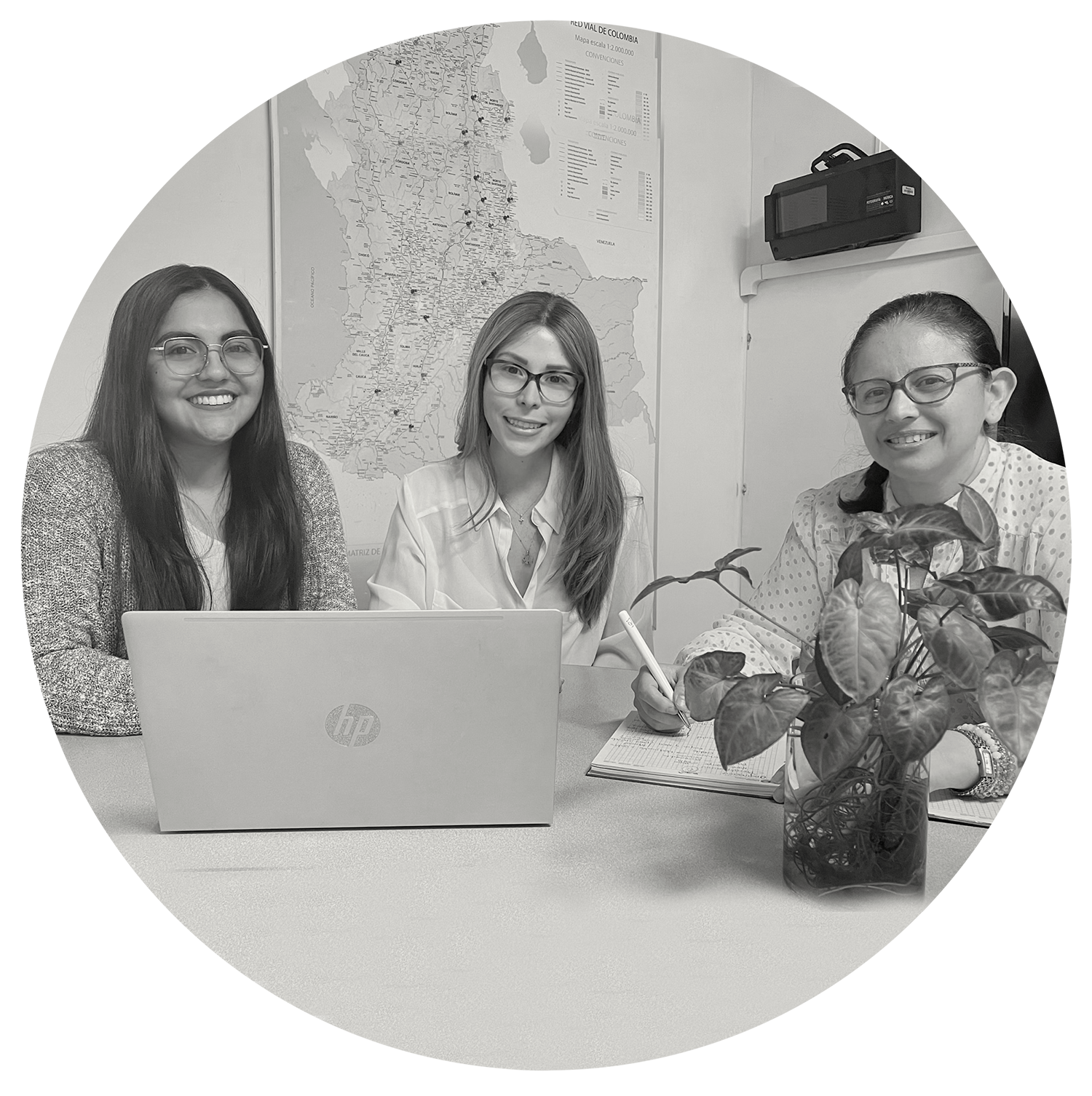
ESG Team




Mareauto is a comprehensive auto fleet manager with presence in Colombia, Ecuador, and Peru. The company focuses on offering short and long-term leasing of new and used vehicles to companies across different sectors. The company continues to expand, offering specialized equipment and technological implementation for both operations and portfolio management.
In 2022, Mareauto appointed its first female CEO, Iliana Morales. Her professional mobility directly represents the company’s values, which include trust, service, agility, and empathy. According to Morales, the company will continue to create a workspace where equal treatment between men and women prevails. In her words: “you must believe in yourself and set limits aside.”
Maureato continues to bet on more environmentally friendly vehicles. At the close of 2022, the company had a fleet of 178 electric vehicles, increasing 56% compared to the previous year. Moving forward, it plans to augment this line as a percentage of its portfolio.
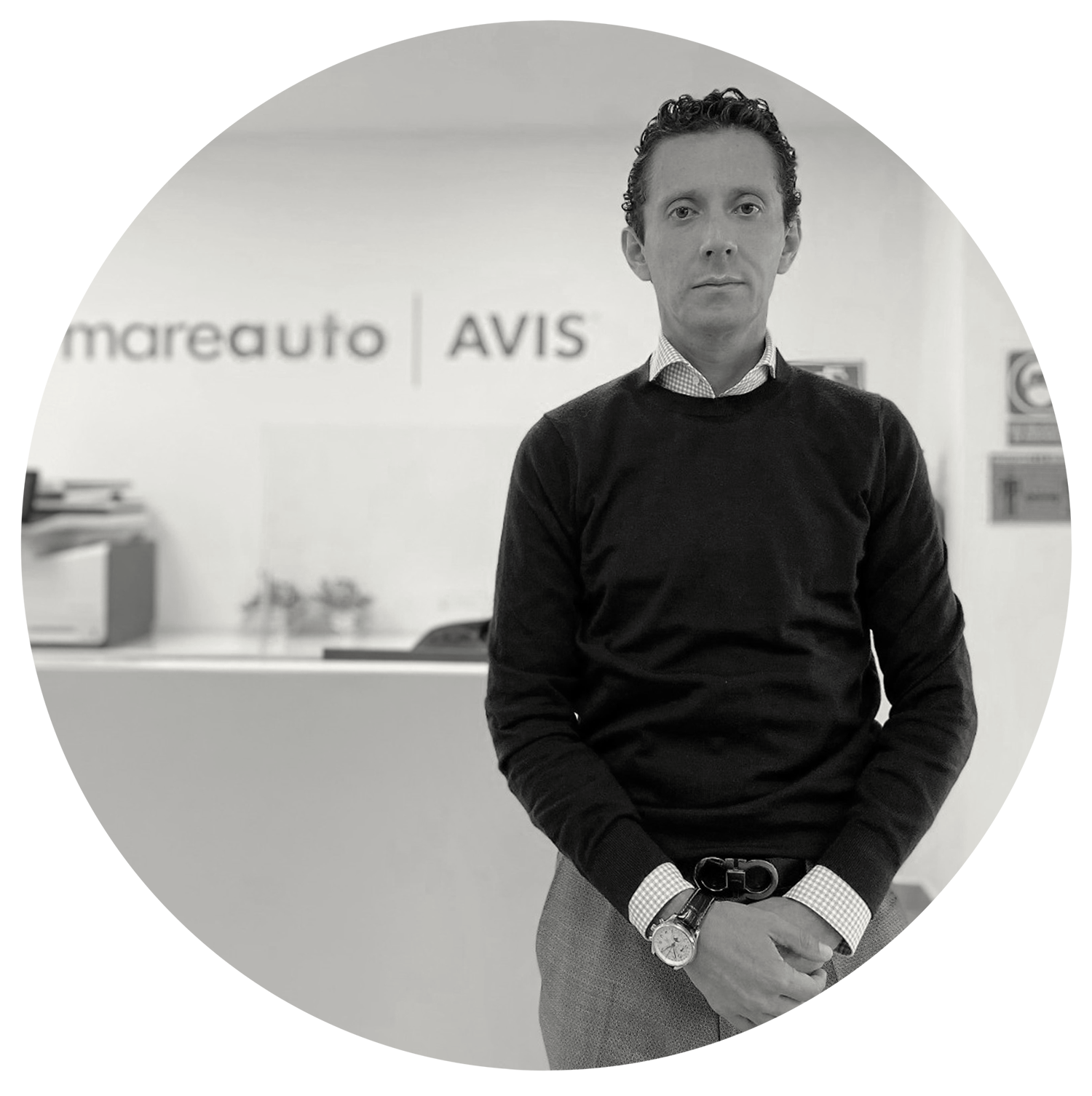
ESG Team


Grupo Creciendo is an unregulated Mexican financial institution focused on expanding microcredit and loans to small and medium-sized businesses.
At the close of 2022, 81% of the company’s active loans were issued to women. This directly contributes to the company’s efforts in reducing gender inequalities based on financial disparity.
Currently, 40% of the company’s electricity consumption comes from renewable sources such as hydroelectric, geothermal, wind, nuclear, and photovoltaic. Its power provider is owned by the Mexican government and demonstrates the country’s commitment to clean energy efforts to reduce greenhouse gas emissions and mitigate climate changes.
In terms of the company’s corporate governance, as of 2022, it has six active committees which meet monthly and quarterly allowing for better monitoring for stakeholders.
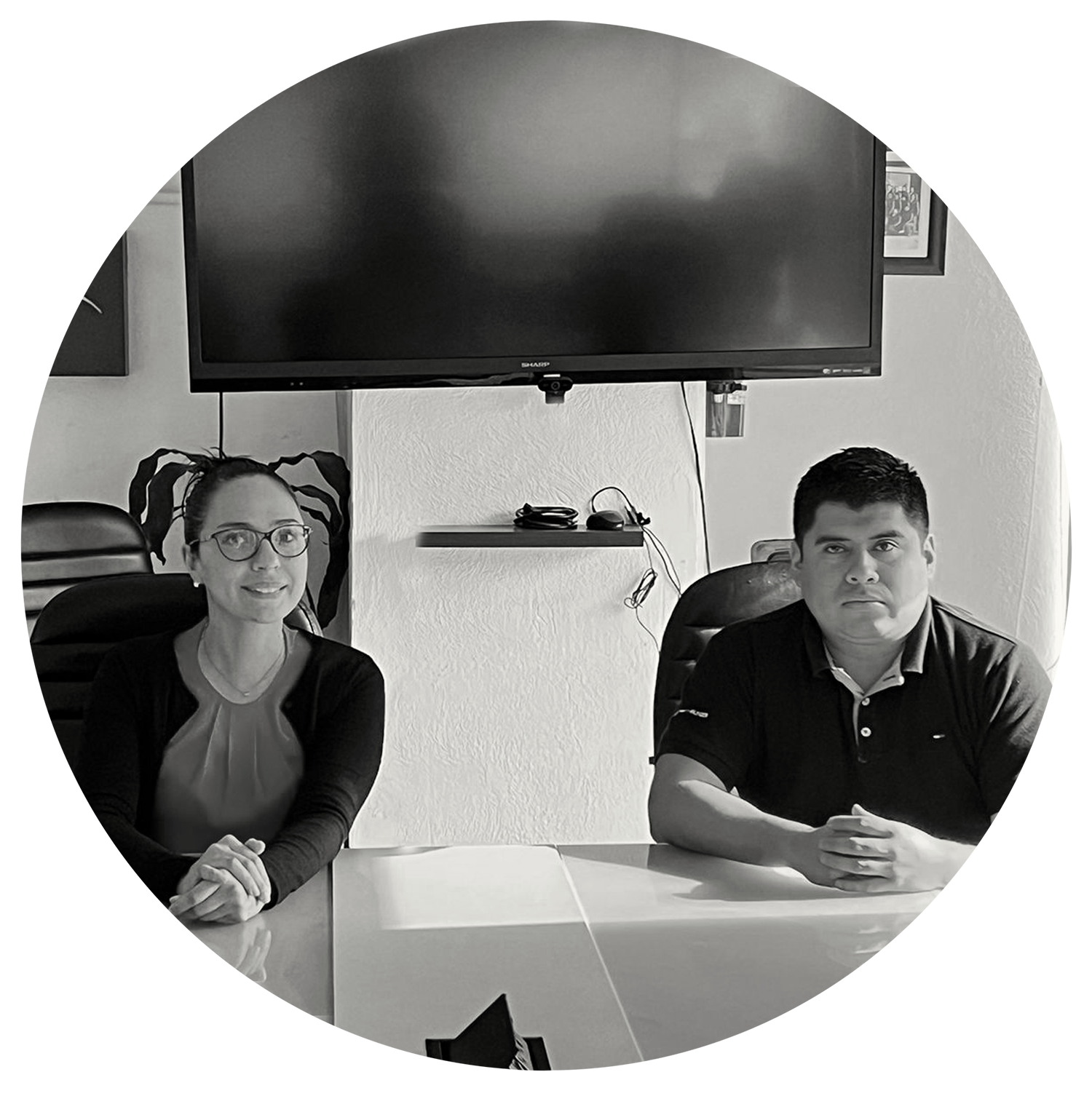
ESG Team




1. Number of injuries / number of employees
2. On balance credit portfolio
3. Revenues from excluded activities / total revenues. Kandeo has received confirmation from the IFC for activities identified, as they are not a central focus of each business. Identified activities include: Tropi [sale of liquor/tobacco]. Sales consolidated at the fund level were calculated as an average of the individual indicator per company.
4. Investment year for each company.
1. Number of injuries / number of employees
2. On balance credit portfolio
3. Revenues from excluded activities / total revenues. Kandeo has received confirmation from the IFC for activities identified, as they are not a central focus of each business. Identified activities include: Tropi [sale of liquor/tobacco]. Sales consolidated at the fund level were calculated as an average of the individual indicator per company.
4. Investment year for each company.
1 . Number of injuries / number of employees
2. On balance credit portfolio
3. Revenues from excluded activities / total revenues. Kandeo has received confirmation from the IFC for the activities identified, given that they are not a central focus of the businesses. The activities identified include: Tropi: sale of liquor/tobacco. Consolidated at the fund level was calculated as an average of the individual indicator per company.
4. Investment year for each company.





Kandeo annually prepares and publishes its ESG Report addressed to all stakeholders. This report contains an overview and performance results for each of our portfolio companies regarding environmental, social, and corporate governance matters.
The 6th Edition of our ESG Report represents the period between January 1 and December 31, 2022, aligning with the company's financial report.
The report consolidates specific information regarding the portfolio’s 14 companies (Acceso Crediticio, USIL, Tropi, Exitus, Progresemos, Mareauto Colombia, Mareauto Ecuador, Mareauto Perú, Siempre Creciendo, Rayco, Acercasa, GFO, Finsocial and Conix) related to contribution to and fulfillment of the United Nations Sustainable Development Goals. We also provide the latest available information concerning the companies sold.
Kandeo doesn't have consolidated financial statements for the funds it manages. The information presented in this report consolidates data from each portfolio company represented by all Kandeo funds. The information included was submitted by each company's management team as well as Kandeo’s internal documentation. This report was validated by Kandeo’s ESG team, designated by Kandeo's CEO, and has not been verified by external sources.
GRI 2-2, 2-3, 2-4, 2-5, 2-13, 2-14
1. Please tell us about your professional and personal background. Where are you from, what did you study and what has been your professional trajectory up until this point?
I’m from Bogota and I received a degree in Business Administration from the Universidad de la Sabana and another in Human Resources from the Universidad de los Andes. I also have two master’s in human resources management from the University of Sergio Arboleda and the University of Illinois, Chicago. I’m a mother of triplets and this has been one of the best experiences of my life. My daughters have been a great driving force in my life. It was a big challenge conceiving them and they’ve become my best team. They are now about to start their college studies… they have been key to my professional success.
2. How did you become Mareauto’s CEO? Tell us about the road that led you to this position.
I joined the organization 4 years ago as a regional talent manager, which was a new position that sprung from integrating the company’s operations in Colombia, Peru, and Ecuador. At this time, I was the only woman in the group, leading a less strategic area; however, I worked closely with the regional managers, first level managers and especially with the CEO at the time. I got involved in not only talent issues but also strategy, getting to know the company in great detail. This was able to happen because I’ve always sought to convert the area dealing with people and talent into a strategic ally of the CEO. And that’s exactly what I did when I arrived at Mareauto. I identified what should be done from my area to leverage and support growth processes for the organization.
Once the position for CEO was open, the board of directors hired a headhunter. I was in charge of managing the transition and understood the company’s goals and strategy. Since the process was taking time, the board of directors offered me the position in the interim for a couple of months. I proposed that during that time they also consider me as a possible candidate. Thus, I completed the various exams and interviews and two months later I was informed of their decision to name me as CEO.
3. What challenges have you faced along the way and how have you overcome them? Has being a woman played against you, worked in your favor, or had no effect?
I’ve never felt that being a woman has affected my career nor my dreams. I started my career in junior positions and I have been climbing upward little by little. I strongly believe in being prepared once an opportunity presents itself. It’s also important to build yourself as a person over time and have a very clear set of values. I believe this is what has propelled my career rather than being a woman.
4. There are currently large gender gaps in the Latin American business world. Only 15% of women hold management positions and only 14% own companies, according to a study by the Inter-American Development Bank (IDB). In your opinion, what is missing?
It is important to eliminate unconscious biases that limit our professional growth. It is also important to be clear about the goals we want to achieve. In my personal case. I had an objective of leading a company and at the same time was aware that I had chosen an unconventional path.
It’s unusual for a Human Resources professional to become CEO. It’s true that men have a greater burden because by nature we are bound to commitments like family, children, etc. And here it is key to organize and build priorities around your family.
5. You have been at Mareauto for a long time. Do you think that the Company has evolved in terms of equal opportunities for men and women? What was the biggest change you feel the company has made?
Mareauto offers equal opportunities to women and men. Additionally, I personally worked hard for the inclusion of different groups. Society is evolving regarding these issues and the diversity conversation is becoming more natural. For Mareauto, it’s necessary to have the best possible talent, regardless of gender or race. This is our policy.
6. As CEO, what strategies would you like to implement at Mareauto to promote professional development and women’s leadership internally?
Currently I promote preparation. Its’ so important to be prepared from the beginning so that when opportunities arrive, we are ready to face them head on. We are also working to raise awareness regarding people’s personal and professional development and how this is directly linked to their motivation and life’s purpose. Where you work is the vehicle that supports your development and that’s why it’s so important to be clear about where you want to go. I want Mareauto to be an organization that opens doors to talent. We are also conducting workshops on purpose with all our employees and staff. I believe this will enhance people’s commitment and reduce staff turnover. Without people there is no company.
7. Do you see Mareauto focused on contributing to Sustainable Development Goals outlined in its 2030 agenda?
We are aware that Mareauto’s activity has already had great impact environmentally. We are entering the world of electric cars and currently we have 180 vehicles. With regards to the social impacts of the company, we take great care of our workforce, and these aspects directly contribute to the fulfillment of the sustainable development goals.
8. What’s next for you? What professional dreams to you want to pursue or achieve?
After working as CEO, I plan to share my life experience to help motivate others to fulfill their dreams.


